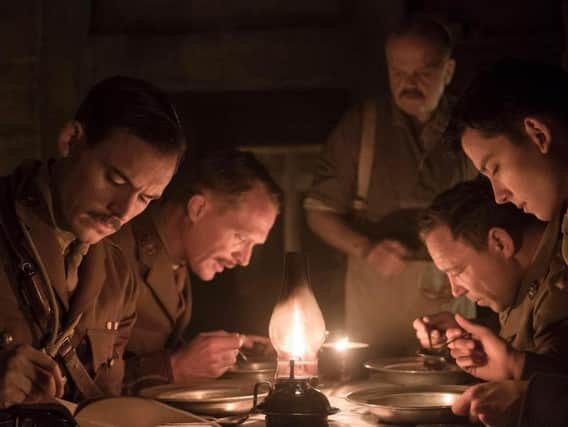REVIEW: Journey's End, in cinemas, 107 minutes.


Saul Dibb (Suite Française, The Duchess) wisely resists the temptation to open up and open out to which directors so often succumb when they transfer stage plays to the big screen. He keeps the tightest of focus – and it’s that which makes this so richly impressive a film.
We are stuck in the trenches with Sheriff’s finely-drawn soldiers as the German spring offensive of 1918 looms. It’s a waiting game for everyone, and it’s all about how they choose to wait – though the Alllied command still manages to throw in the odd pointless foray just to break the monotony.
Advertisement
Hide AdAdvertisement
Hide AdAsa Butterfield is the newly-arrived Raleigh, keen to catch up with family friend Captain Stanhope (Sam Claflin) whose men are already in northern France taking their turns in the front-line trenches.
Raleigh is initially all eagerness and enthusiasm – both of which crash against the sense of doom enveloping the trench. Stanhope is war-weary beyond belief; Tom Sturridge’s Hibbert is losing it; only Paul Bettany’s Osborne is holding it all together, kindly, humane and resigned to the inevitable.
Beautifully served by his cast, Dibb allows the pressure to grow and the full weight of the impending sacrifice to settle.
Just one scene leaves the front; arguably we could have done without it; but otherwise, this is grim, engrossing viewing – an essential reminder of not just what was at stake, but what was actually lost.
Adding to the poignancy of it all is Toby Jones as their cook, his humour all the sharper for the horror they are facing.